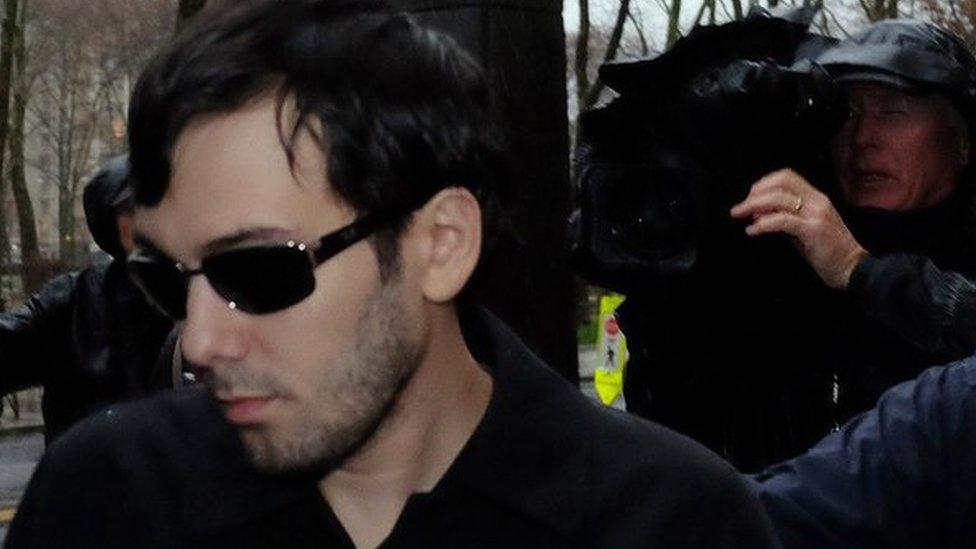Martin Shkreli's trial shines light on US healthcare debate
- Published
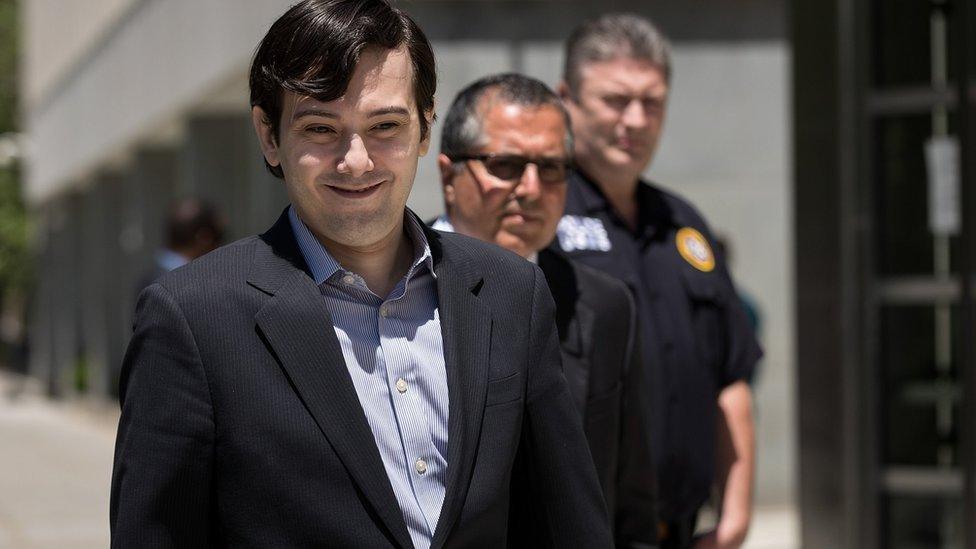
Former head of Turing Pharmaceuticals, Martin Shkreli, attracted ire for his firm's massive price rises
Martin Shkreli, who attracted the nickname "Pharma Bro" and accusations of price gouging, is on trial in the US this week.
But his case has little to do with the actions that won him notoriety.
Prosecutors allege he committed fraud. They say he lied to investors and misused money to cover losses at different companies.
But the much-hated drug price rise he enacted as chief executive of Turing Pharmaceuticals was legal - and looks likely to remain that way, despite a push in the US for sweeping healthcare changes.
Washington debate
Mr Shkreli became a symbol of pharmaceutical greed in 2015 when his firm raised the price of Daraprim, a treatment for parasite infection that had been around for more than 60 years, from $13.50 a tablet to $750 (£584).
The move drew widespread criticism, including from US President Donald Trump, who called, external Mr Shkreli 'a spoiled brat' and said, external the industry was "getting away with murder".
President Trump later told, external Congress that a goal guiding healthcare reform should be changes to bring down the "artificially high" cost of drugs.
Alarmed at the mounting pressure, several major drug companies earlier this year pledged, external to limit price increases to less than 10%.
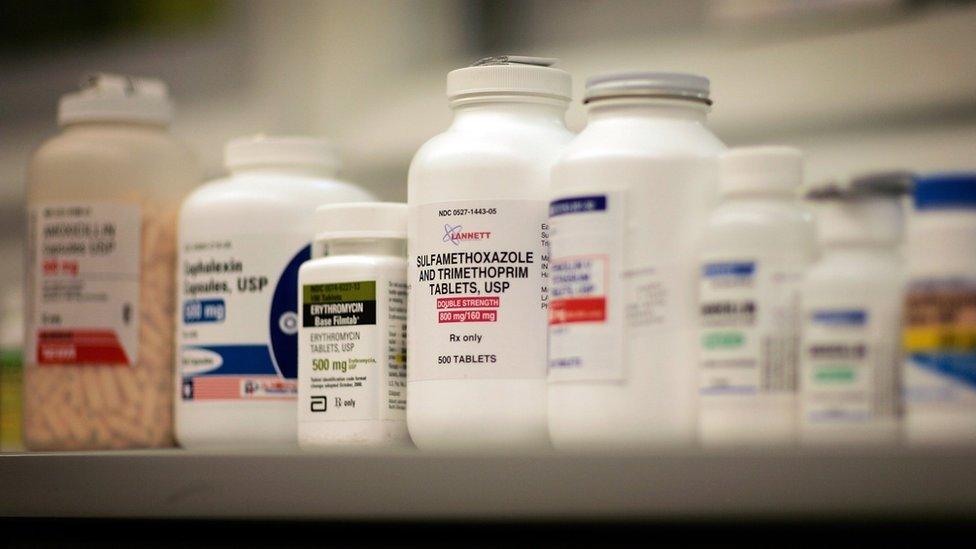
Prices for the 20 highest earning drugs are on average triple the cost in the US compared to the UK, says the JAMA
But healthcare shares rallied last week, as Senate and White House proposals for healthcare and prescription drugs came into focus without signs of a crackdown.
Those watching the political debates unfolding in Washington say they do not expect changes to address prescription drug costs this year.
"I don't expect any dramatic action in the near term," said John Rother, chief executive of the National Coalition on Health Care, which started a campaign against rising prescription drug prices two and a half years ago.
Higher prices
Turing's pricing moves were extreme - but they were not isolated.
While overall generic drug prices declined between 2010 and 2015, according to a US Government Accountability Office (GAO), external study of prices paid through the US's Medicare government programme - the cost of over 300 established generic drugs saw prices rises of 100% or more.
Net spending on prescription drugs increased nearly 20% in the US between 2013 and 2015, according to the Journal of the American Medical Association (JAMA), external.
Elsewhere, in Britain, Australia, France and Germany, the government regulates prices.
But in the US, where pharmaceutical companies are a powerful political force, firms set the cost, which subsequently gets renegotiated with insurers, suppliers and hospitals.

US healthcare: In numbers
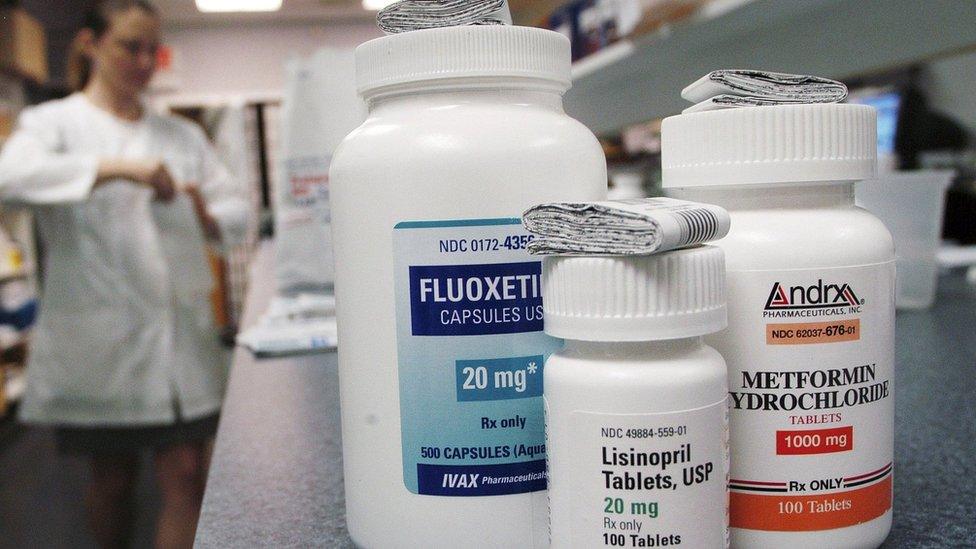
61% of Americans say cutting prescription drug costs should be a top priority, says a Kaiser Health, external survey
Healthcare costs top US families' financial concerns, external
More than 40% of online US crowdfunding campaigns are for help with medical bills, says NerdWallet, external
The US spends $9,403 per person on healthcare, compared to $3,935 in the UK, says the World Bank, external
The percentage of adults aged 18-64 with high deductible plans - where insurance doesn't apply until annual bills total more than $1,300 - has risen from about 26% to about 39%, says the National Center for Health Statistics, external
Prescription medications represent about 17% of overall personal healthcare services, says JAMA, external

What's happening now?
This complex and opaque pricing system means abuses can hide and stories, external of $629 sticking plasters, external aren't uncommon.
But awareness of the issue has grown, as patients shoulder more healthcare costs. (In fact, anger over the subject has made it difficult, external to find impartial jurors in the Shkreli trial.)
"This is a top of the mind issue for the public," said Mr Rother, whose group represents organisations such as hospitals and insurers. "I do think that Congress will have to respond in some way because the public is so angry."
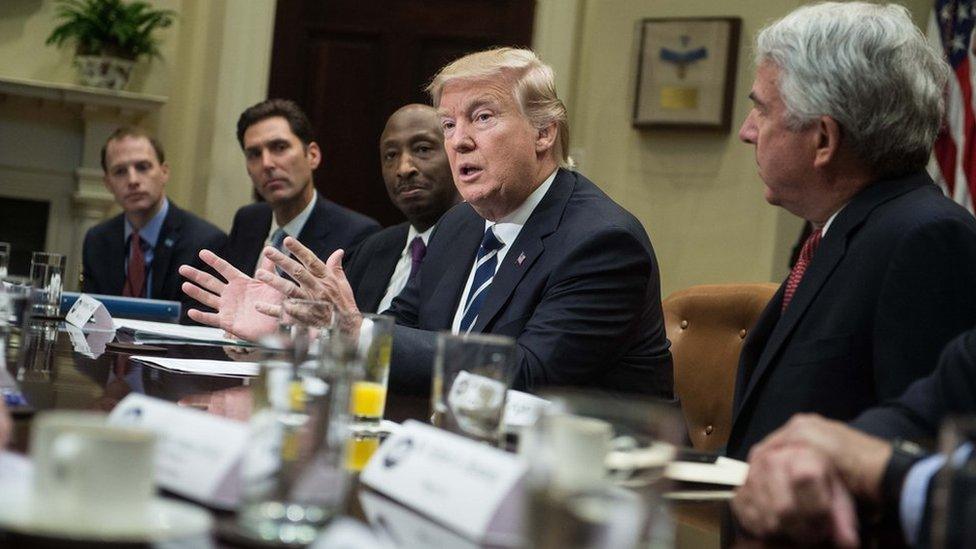
President Donald Trump is reported to be working on proposals to address higher drugs costs
The Senate healthcare bill put forward by Republicans - a proposal whose passage is now in doubt - is nearly silent on the issue, but Congress has hosted hearings about it.
President Trump is also working on an order related to the topic.
However, early reports suggest that the Trump plan hews closely to proposals favoured by the pharmaceutical industry - and could actually increase the cost of drugs.
For example, it would strengthen drug companies' rights overseas.
The White House, which asked a former industry lobbyist to oversee the effort, did not respond to a request for comment. Republican leaders in the Senate did not respond or declined to respond to questions on the issue.
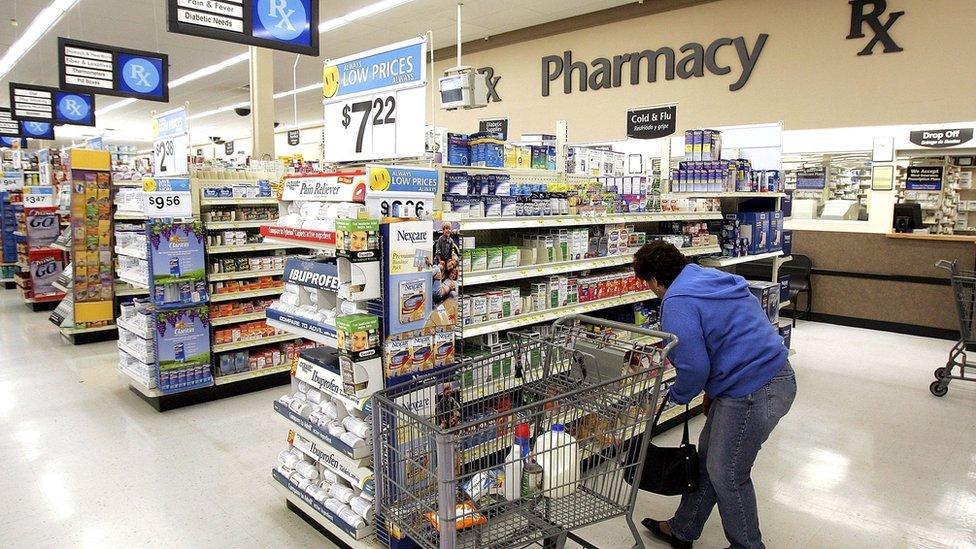
But there are unlikely to be government curbs in place to address the issue this year
Last week, Democrats wrote a letter to the president saying they were "troubled" by the reports of his proposal. They want stronger action.
They've put forward proposals that would clarify pricing information, give Medicare the power to negotiate its drug costs and empower health officials to punish companies that engage in price gouging, among other measures.
Dr Aaron Kesselheim, a professor at Harvard Medical School and one of the authors of the JAMA paper about prescription drug prices, says the government must intervene to prevent future abuses.
"Until we take a look at the aspects of the pharmaceutical market that allow the Martin Shkrelis of the world to do what they do, then they're going to keep doing it."
State action
Gerard Anderson, a professor at the Johns Hopkins Bloomberg School of Public Health, spoke at a congressional hearing in June.
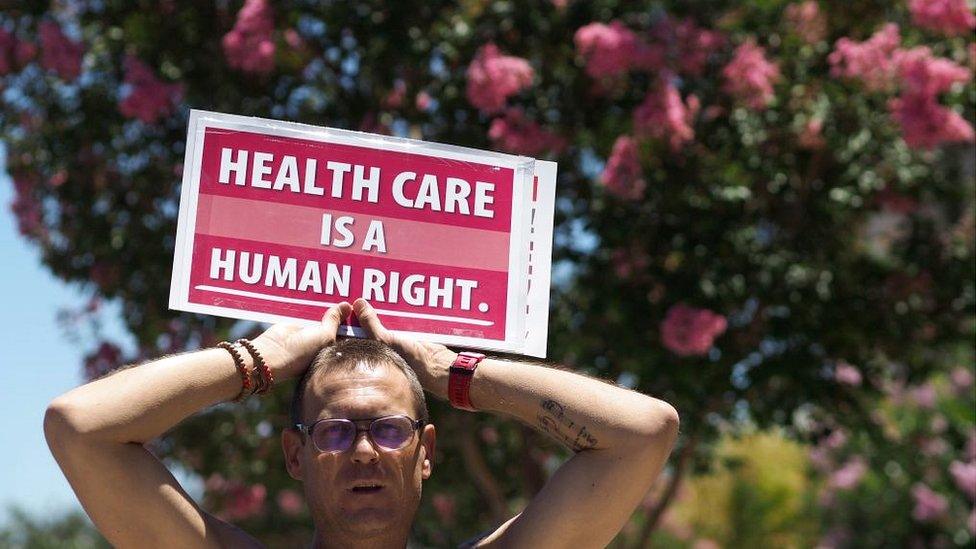
The rising cost of healthcare is concern for many in the US
He sees increased willingness among federal and state policymakers to take action, even if talk has died down since the presidential campaign.
He pointed to a new law in Maryland that gives the state the power to act against firms that implement "unconscionable" price hikes on certain kinds of drugs as a sign of growing momentum.
"I don't know that it's this year or next year, but it's inevitable," he said.
Mr Shkreli last year made a different bet.
Instead of taking offence when Mr Trump dismissed him as a brat, he backed the Republican candidate.
He said, external Mr Trump would "make it easier to be a drug company in America".
Time will tell if the president proves him right.
- Published27 June 2017
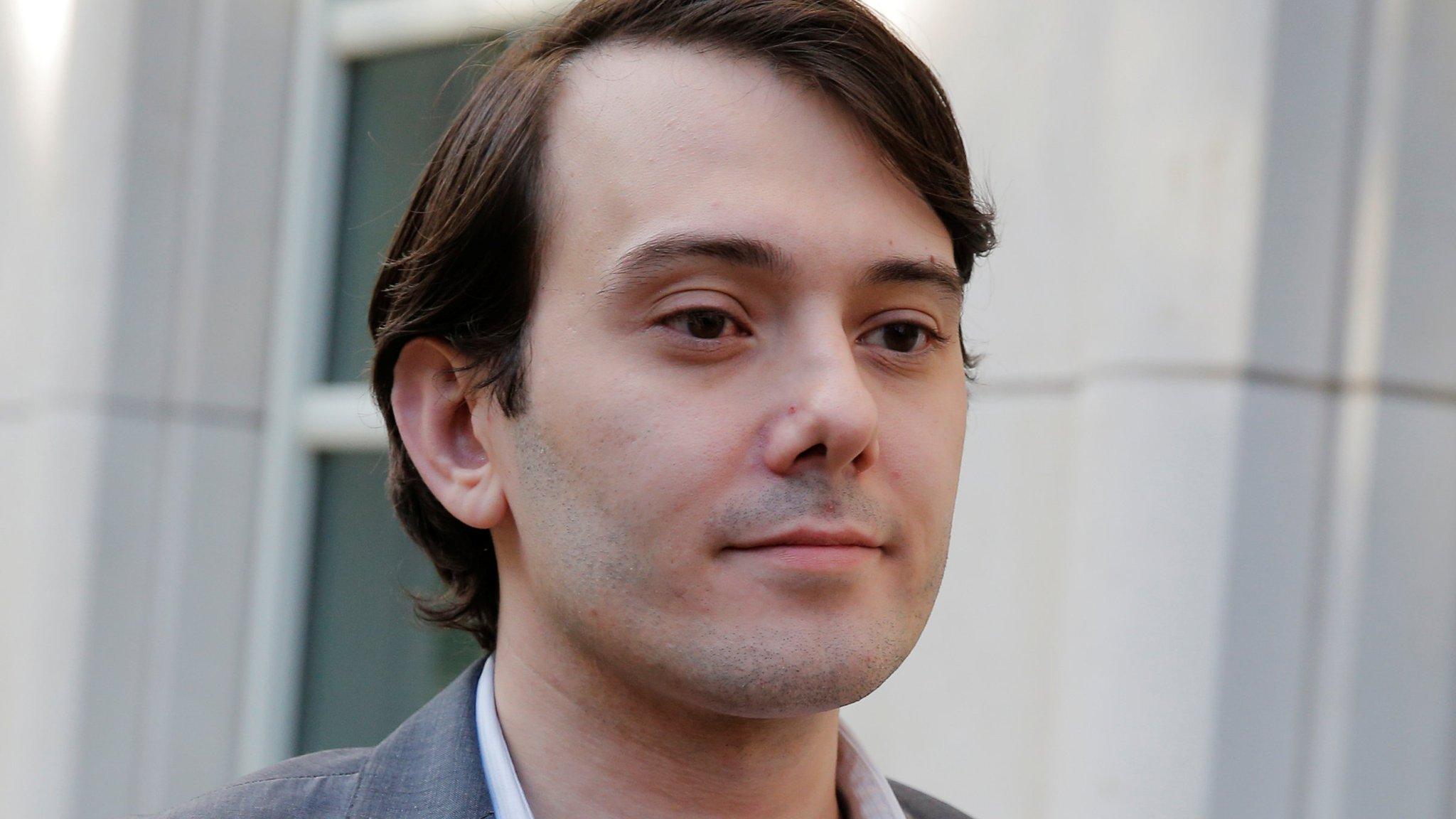
- Published9 January 2017
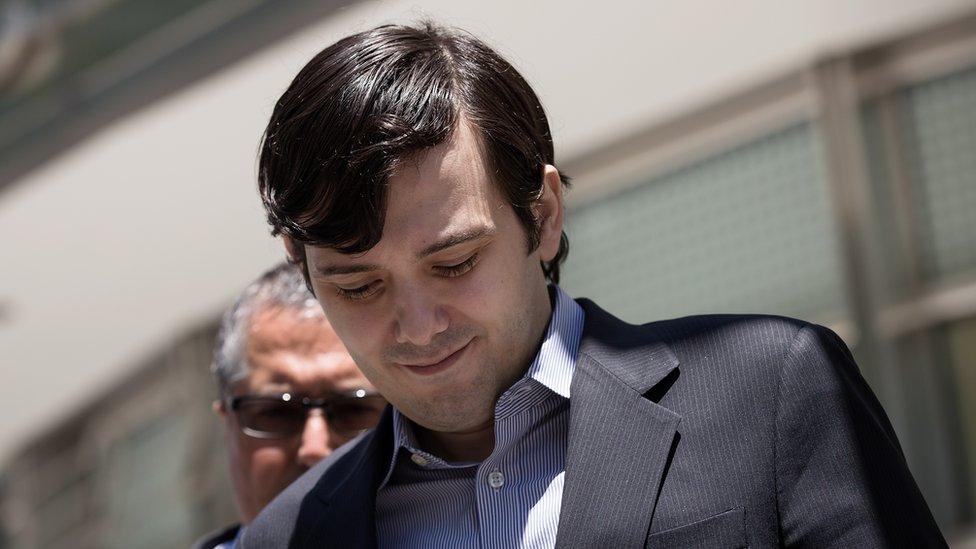
- Published2 December 2016

- Published28 September 2016
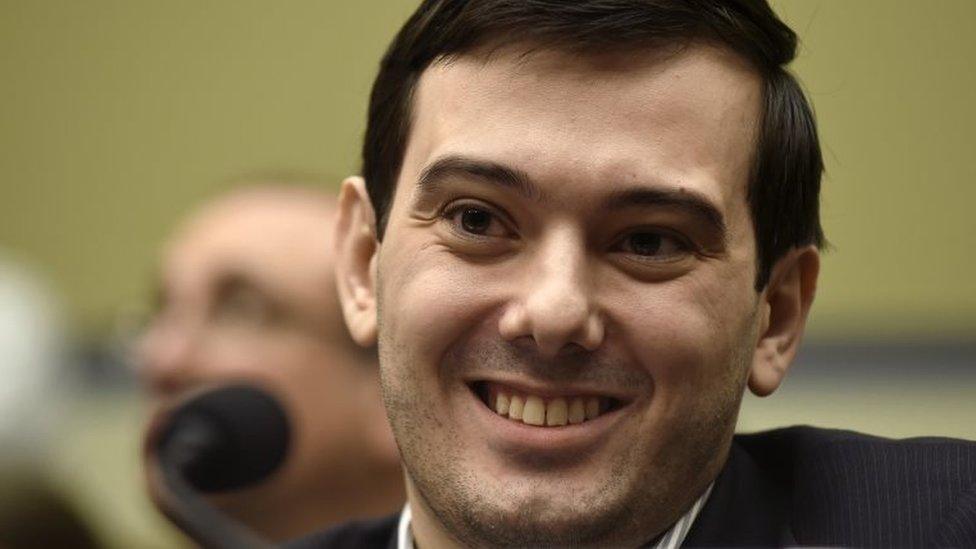
- Published9 February 2016
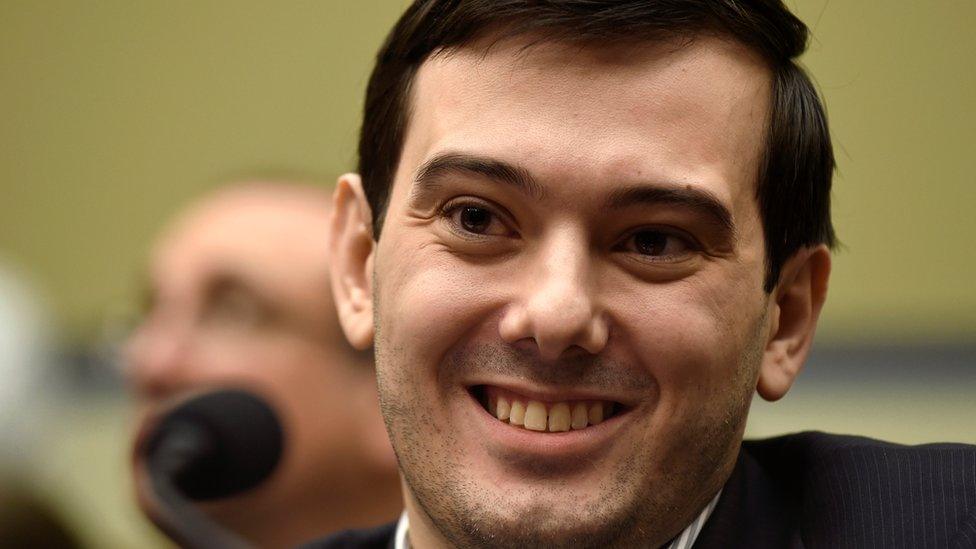
- Published4 February 2016
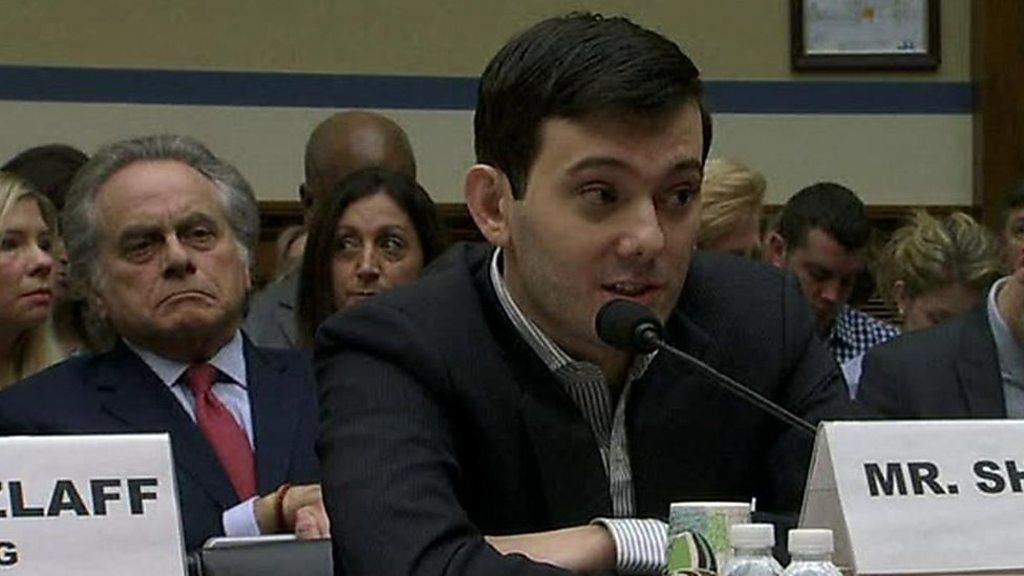
- Published22 January 2016
